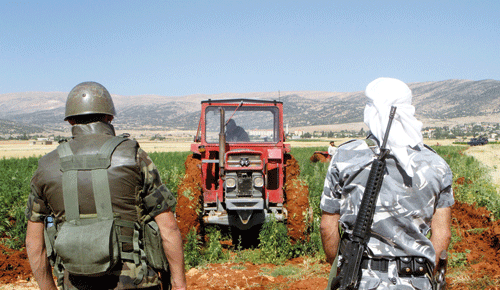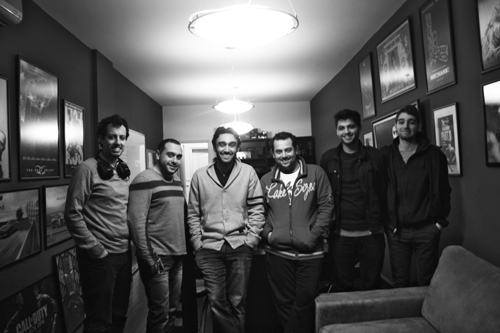The mainly Shia tribes of the Bekaa Valley are fiercely independent, live by strict traditions of honor and clan solidarity and scorn the dictates of the Lebanese state. In the past month, the Bekaa tribes have hit the headlines in Lebanon with brazen displays of defiance toward the state, leaving the government looking impotent and providing another headache for Hezbollah, which is already reeling from a succession of crises.
The abduction of more than 20 Syrians in Lebanon by the Meqdad clan came in retaliation to the kidnapping of Hassan Meqdad in Damascus. The rebel Free Syrian Army (FSA) accused Hassan Meqdad of being a member of Hezbollah. Hezbollah and the Meqdad family have denied the claims, with the latter saying that he was an employee of a Lebanese bank.
The tit-for-tat kidnappings were not the first since the uprising against Syrian President Bashar al-Assad began in March last year. In May, the FSA kidnapped three Lebanese Shias, one of whom was from the powerful Jaafar clan. In response, the Jaafars kidnapped more than 30 Syrians and fought running battles with the FSA for a week. A subsequent prisoner swap settled the matter.
The kidnappings by the Meqdads in August gained greater prominence than the earlier Jaafar abductions because of the clan’s decision to hold a series of well-attended press conferences in southern Beirut. The Meqdads refused to meet with Interior Minister Marwan Charbel, scrapped with Ali Meqdad, a Hezbollah Member of Parliament, and left the tourism ministry wringing its hands as the few Gulf visitors to Beirut saw their respective governments issue emergency warnings to leave.
This was the second humiliation for the Lebanese government at the hands of the Bekaa clans inside a month. In early August, the annual hashish eradication program was cancelled in the face of unusually stiff resistance by a coalition of three Bekaa tribes, who had earlier formed a mutual defense pact to protect their lucrative but illicit crops. The Sharif, Jaafar and Shammas families agreed that they would come to each other’s assistance the moment the army and police arrive at a hashish field with their tractors. In the village of Deir Al Wassah, a Jaafar stronghold, a column of army and police vehicles was ambushed by rocket-propelled grenades and machine guns, leaving several soldiers wounded. The residents of Yammouneh, the Sharif family, blocked the road leading to the village with burning tires and denied access to the army. Minister Charbel was obliged to visit Yammouneh to appease the villagers and forge a deal to end the crisis.
Hashish cultivation in the Bekaa has long been a source of controversy in Lebanon. In the early 1990s, the farmers agreed to stop growing hashish as part of an internationally funded donor program that would encourage the cultivation of alternative crops. But the promised funds never came — successive governments blamed foreign donors for reneging on their promises, while the foreign donors claimed Lebanon never drew up realistic proposals. Either way, by the late 1990s, the impoverished farmers began growing hashish again.
The tribal alliance between the Jaafar, Shammas and Sharif families is an interesting development and could see the Bekaa clans becoming a potent force. The Zeaiters apparently declined to join the alliance and lost much of their hashish. The Christian hashish farmers of Deir Al Ahmar allowed the army to eradicate their crops, following assurances from a political figure who has strong support in the town that they would be compensated by the state.
Only the tribal alliance seems to have successfully seen off the government and protected their crops. The alliance has apparently encouraged some clans in the northern Bekaa to consider forming their own alliance to protect their hashish crops.
Such displays of cross-clan unity would be a serious headache for Hezbollah, which has traditionally sought to appease and mollify the tribes to maintain its political influence in the area. Significantly, Hezbollah apparently green-lighted the hashish eradication program this year and even permitted the army into one of its “security pockets” near Yammouneh in an attempt to outflank Jaafar gunmen, according to members of the Jaafar clan. The move angered the Jaafars: according to one prominent member of the family, some 200 Jaafars serving with Hezbollah quit the party in protest.
Given the looming parliamentary elections, Hezbollah may have to do some serious fence mending with the tribes in the months ahead.
NICHOLAS BLANFORD is the Beirut-based correspondent for The Times of London and The Christian Science Monitor








![CAT_Picture11[1]](https://www.executive-magazine.com/wp-content/uploads/2014/01/CAT_Picture111.gif)

